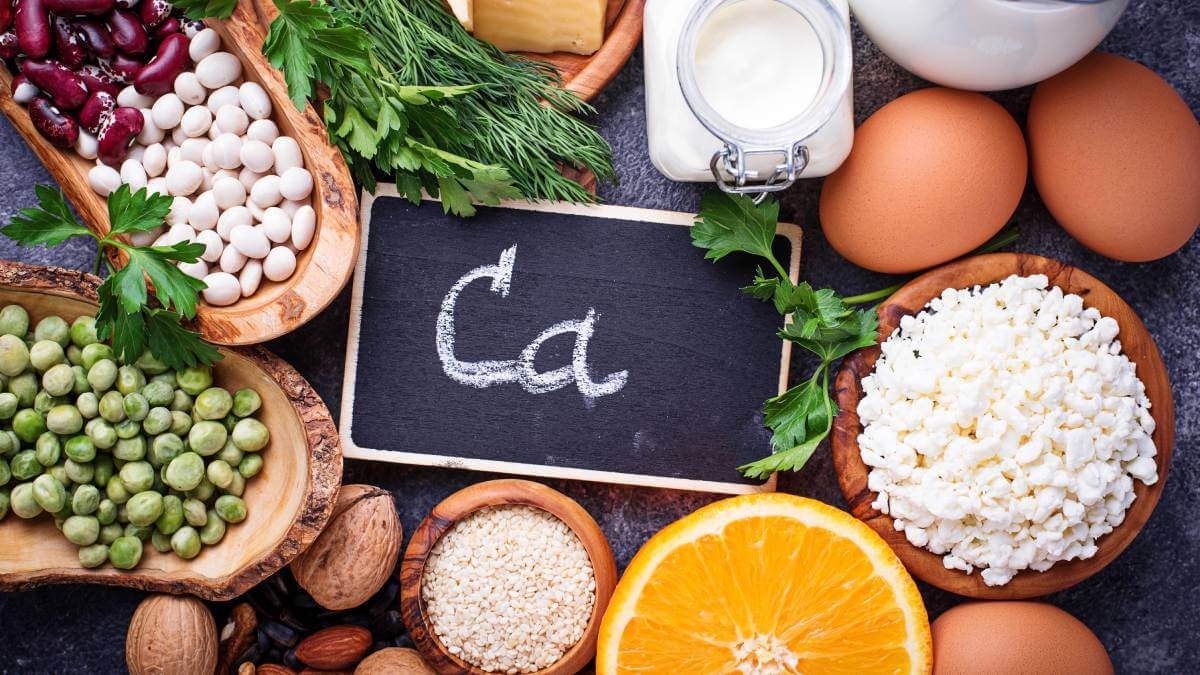Calcium is a vital mineral for the body, as it plays a number of important roles in keeping us healthy. Calcium helps to build and maintain strong bones and teeth, allows muscles to contract and relax, helps nerves to transmit signals, and helps blood to clot. Calcium also helps regulate the heartbeat, and is essential for the formation of new cells. All of these processes are necessary for a healthy body.
During the ageing process, your bones lose mineral content faster, so the risk of developing brittle bones and fracture increases.
Over a lifetime, women can lose between 30 and 50 per cent of bone mass while men can lose between 20 and 30 per cent.
It’s therefore vital to maintain the calcium in your diet, especially if you’re a post-menopausal woman.
Read: How to go about looking after your bones
Calcium is such a critical nutrient that it makes up about 2 per cent of the average adult’s weight.
The majority of the calcium in our body is stored in our bones, where it provides strength and structure. The small amount that’s circulating in the bloodstream helps to move nutrients across cell membranes and plays a role in producing the hormones and enzymes that regulate our digestion and metabolism.
Calcium is also needed for ongoing communication among the nerve cells, blood clotting, healing wounds and muscle contraction.
In order to have enough of this vital mineral available in the blood, the body will ‘steal’ it from the bones, which can leave them fragile.
How much calcium your body needs depends on your age and your gender.
The Recommended Daily Intake (RDI) in Australia for adults between 19 to 50 years of age is 1000mg/day. This increases to 1300mg/day for either women over 50 years of age or men aged over 70 years.
As calcium is not made in the body it must be absorbed from our food and drink. Therefore, consuming a healthy calcium rich diet is the preferable approach to meeting your RDI.
Read: Waging war on broken bones
High calcium foods
Milk, yogurt, cheese, and other dairy products have high levels of calcium, and also other key nutrients for bone health, such as phosphorus and protein.
When you read food labels, look for foods and drinks that give you 10 per cent or more of the daily value for calcium.
If you’re lactose intolerant or if you avoid dairy for other reasons, there are lots of other options:
- Seafood such as trout, snapper, mussels, oysters, prawns, canned sardines or salmon contains 35 – 300 mg per serve.
- Vegetables such as cucumber, kale, silverbeet, Chinese cabbage, broccoli rocket, watercress, bok choy and leeks contain 59 – 250 mg per serve.
- Nuts and seeds such as almonds, brazil nuts, hazelnuts, walnuts, sesame seeds and tahini paste contain 28 – 75 mg per serve.
- Fruits such as oranges, strawberries, figs, kiwi fruit and dates contain 16 – 95 mg per serve.
- Eggs, calcium-set tofu, canned chickpeas and soybeans contain 21 – 105 mg per serve.
- Meat such as pork and chicken contains 21 – 105 mg per serve.
Calcium absorption
Not all the calcium we consume is absorbed. A small amount of calcium will be lost and excreted from the body, which is normal. This is factored into the recommended intake for your age.
Other factors can impact calcium absorption and should be discussed with your doctor, for example:
- low vitamin D levels
- excessive caffeine and alcohol intake
- certain medical conditions (for example coeliac disease, kidney disease).
Signs of calcium deficiency
There generally are no obvious symptoms (at least in the short term) from not consuming enough calcium. Over time, low calcium intake can have detrimental effects on different body systems, including contributing to low bone mass and risk for osteoporosis. A severe calcium deficiency can produce symptoms, such as numbness and tingling in the fingers, convulsions and abnormal heart rhythm.
Read: How to protect your bones if you’re a vegetarian
Calcium supplements
If you feel you aren’t getting enough calcium from foods, you may want to consider taking a calcium supplement. Calcium supplements come in two forms: calcium citrate or calcium carbonate. Calcium carbonate is dependent on stomach acid for absorption, so this form is more readily absorbed while taken with food. Calcium citrate, which is less common in supplement form, is absorbed equally well with or without food.
Before starting to take a supplement, be sure to talk to your doctor. It’s important not to take too much calcium in supplement form.
Are you confident you have enough calcium in your diet? What food high in calcium do you most enjoy? Let us know in the comments section below.
Disclaimer: This article contains general information about health issues and is not advice. For health advice, consult your medical practitioner.

